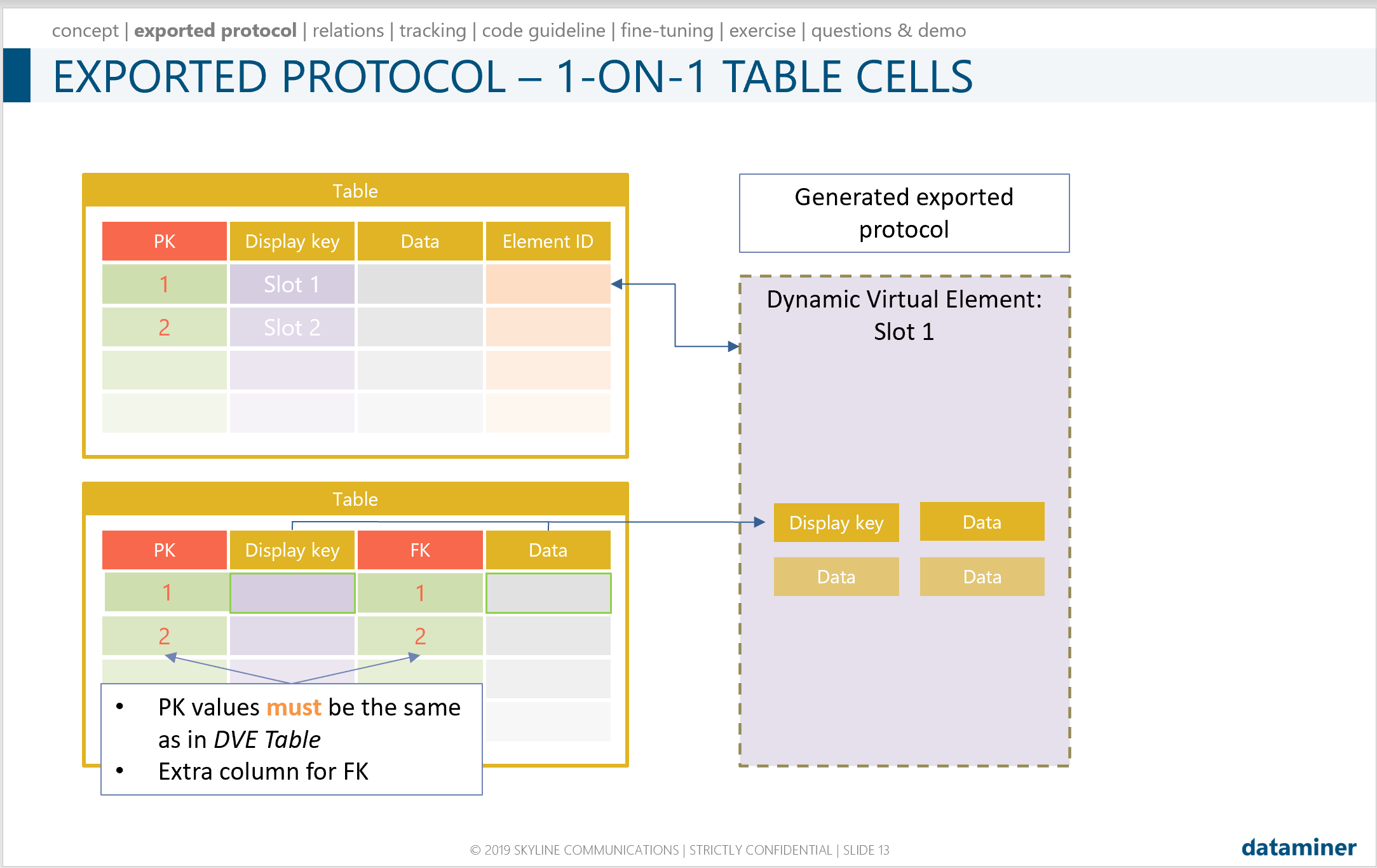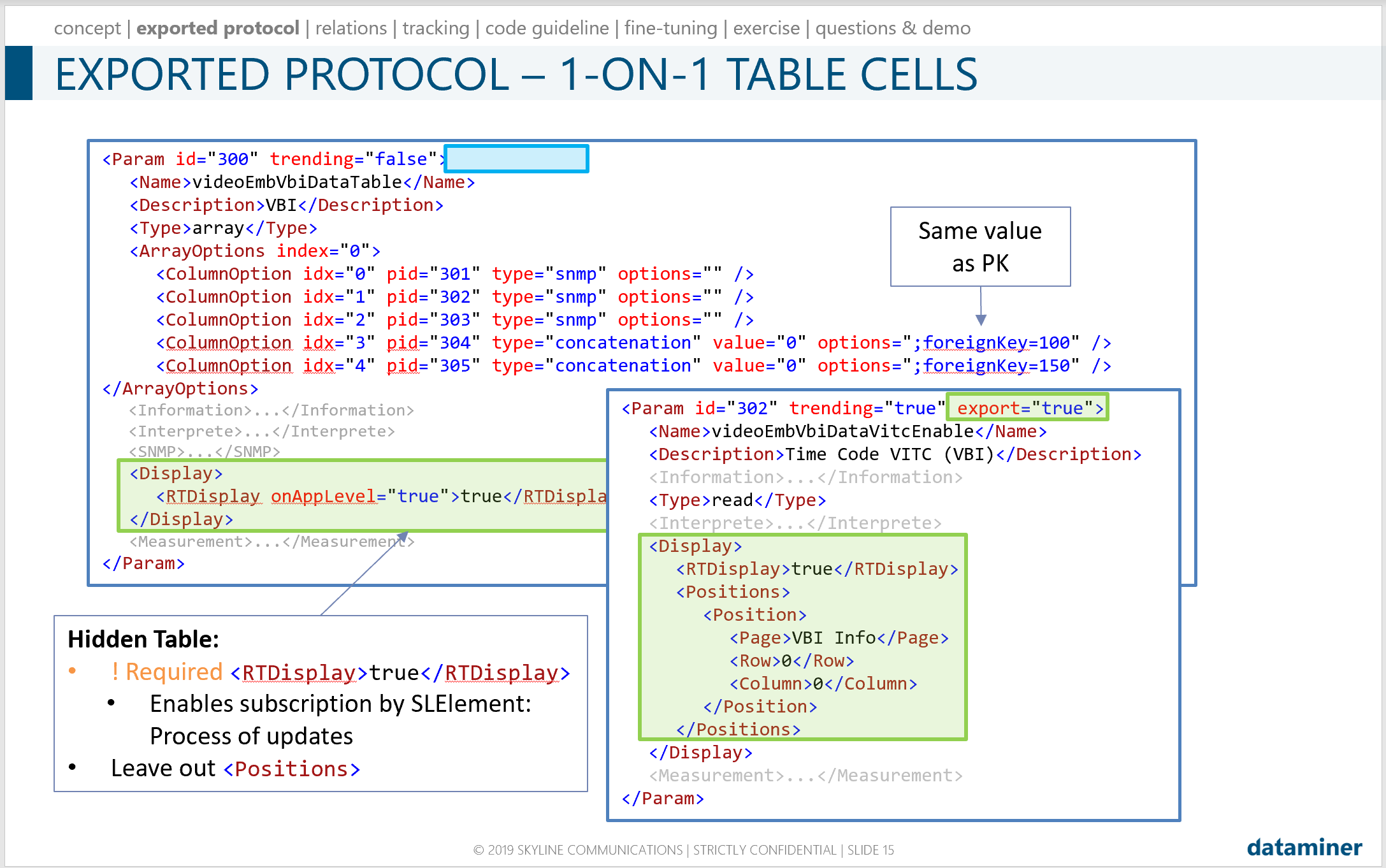Hi,
When working with DVEs, exported parameters should be in a table in order to associate them with a foreign key. My question is whether this is also a requirement when working with SRM resources/function DVEs, or if in this case we can directly export standalone parameters without issues (e.g., start failing sets after some time)?
Hi Flavio,
Exporting a standalone parameter to a function DVE should be possible while it is, as you mentioned, not possible for a regular DVE.
The reasoning behind this compatibility is that alarms are moved to their corresponding DVE, while they remain on the main element in case of function DVEs. As such, function DVEs do not give the problem of ownership over alarms.
Note that for both DVE cases, the data is always stored under the main element in SLElement, and not duplicated. So a parameter set should work coming from any source, and not “suddenly stop working”. If there’s a case where sets don’t seem to work, then there’s likely a software issue where we don’t resolve the host element correctly. If you do encounter issues, please send a task with a way to replicate it to the create.fabric user.
Flavio, I do not have an answer, but I want to make sure we understand your question correctly. So please confirm / correct me:
Exporting data to a DVE can be done in 3 different ways:
- As stand-alone from the table generating the DVE
- As table from a table linked via a FK to the table generating the DVE
- As stand-alone from a table linked via a FK to the table generating the DVE and using the same PK value as the table generating the DVE. This makes sure DMA knows there is a 1:1 relation between the rows.
Is your question if exporting data to a function dve behaves the same?
Meaning we could export stand-alone params from a table when we meet the criteria as defined for DVEs?


Hi Mieke,
Thank you for your feedback. Not exactly that question. The question was if we can export standalone parameters from the main element to the function dve without issues (such as the sets stop working after a while).
In a nutshell: standalone to standalone
Kind regards,
Hi Floris,
Thanks for the feedback. This was really enlightening.